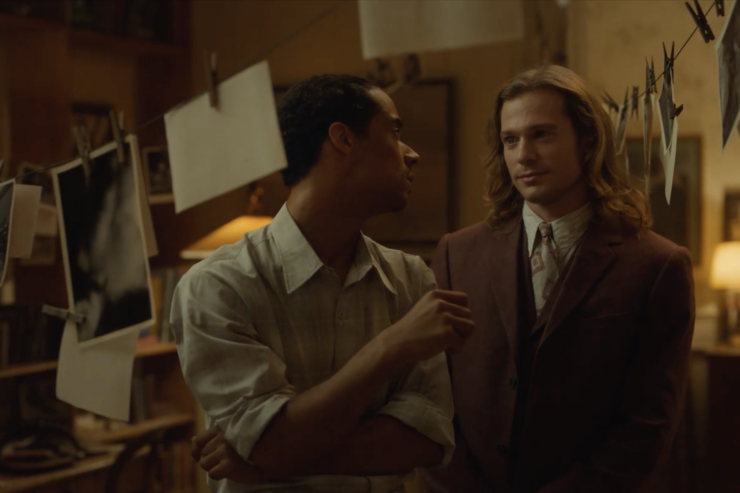It was just eight short weeks ago that I wrote about the first season of Interview with the Vampire on AMC. Like so many shows from 2022, Interview took two years to return to our screens due to a combination of pandemic scheduling and studio resistance to the writers’ strike. But now that the second season has come and gone and the show has been renewed (somewhat bafflingly) for season three, it’s time to reflect on how this last season stood up to one of the best debuts of any series and whether or not it remains, far and away, the most thoughtful telling of Anne Rice’s classic novel. I’ll hash out what worked, what didn’t, and what’s next below, (including spoilers for both seasons).
Memory Is the Monster
“Does anyone ever ask Lazarus if he wanted to be woken?” Louis de Pointe du Lac (Jacob Anderson), the titular vampire, asks rhetorically towards the start of season 2’s finale. Daniel Molloy (Eric Bogossian), the interviewer, responds with “No one gives a shit about Lazarus’ point of view is what I remember.” And that’s a pretty good summation of the sophomore season’s aims. It’s asking if immortality is worth it when love is uncertain and sorrow is guaranteed. Louis has always perceived his vampiric existence as a curse, and a hundred and twelve years after being turned, he seems adrift, despondent in one moment, passionate about returning to the past the next. He is the unconsulted Lazarus, finally getting to tell his story but never, so he thinks, in charge of what happens to him. He is a being of profound passivity and the show, especially in this second season, serves as a record of all the moments in which he feels powerless, recollecting what happened and as unable to change the past as he is the present.
But that doesn’t mean that he’s not fun to watch. Louis in late ’40s Paris is a joy to see. The show invokes a little bit of James Baldwin during his time in Paris (when he wrote Giovanni’s Room): not fully comfortable, but marveling and, to a small extent, reveling in his freedom from colorist American racism. One of the best things about the show’s obsession with memory and all its pitfalls is the way it sells a time and place to its audience. In Louis’ narrated memory, New Orleans at the turn of the century and post-war Paris are complex but compelling fantasies, equally interested in historical accuracy and the soft-focus wash of nostalgia.
Loneliness Is the Curse
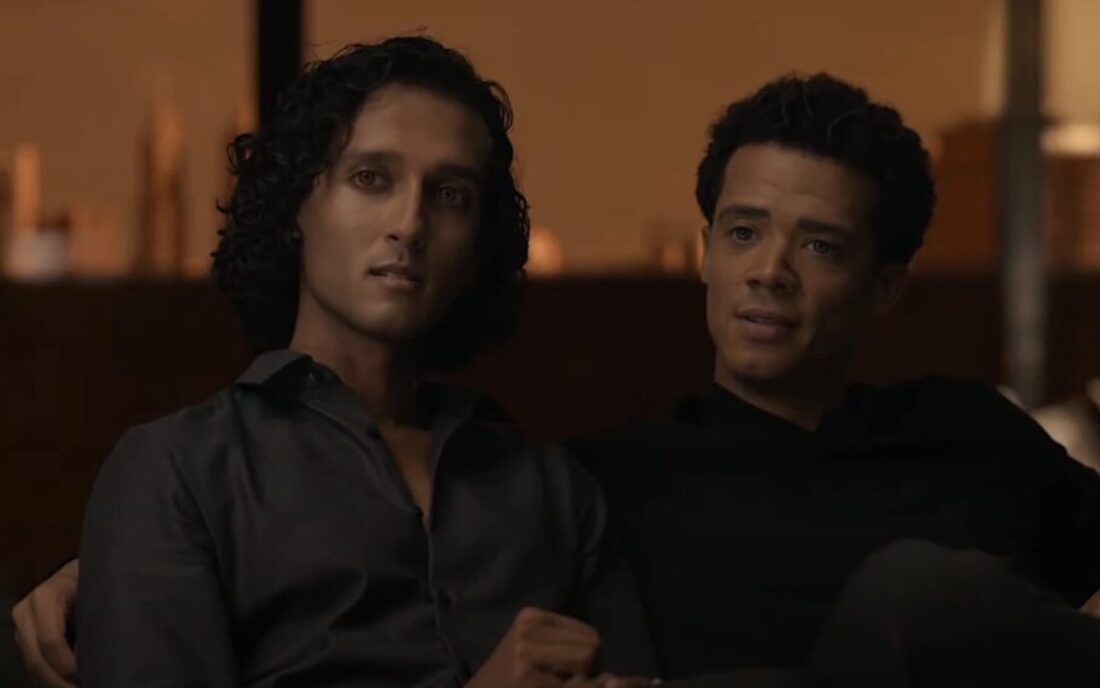
Anne Rice’s 1976 novel mainly takes place in New Orleans and Paris. But there is a detour, around the middle of the book, to Romania. It gives Rice a chance to explore the intersection of her vampires (who are rooted in the French and creole culture that she, herself, grew up in) and the most famous vampires in Western culture—the Romanian monsters who helped to inspire Bram Stoker’s Dracula. Rice describes the vampires of Romania as feral, corpse-like, and unintelligent: “We had met the European Vampire, the creature of the Old World. He was dead” (Rice 192). It’s later explained away as being a subspecies with rotten, impoverished blood. This whole act was cut from the 1994 film and it doesn’t register much with fans of the book. Part One has Lestat, part three has Armand, but the forgotten second part of the novel has relatively little in the way of tortured vampire romance. But, as a vampire completionist, I’m glad the show found room for it. They also managed to make it an important part of the season’s central theme: loneliness
Instead of depicting the Romanian vampire as having an inferior bloodline, the show tells us that the vampires that live in currently war-torn Romania—contending with first the Nazis and then the Soviets—are drinking from blood that has been poisoned by grief. They are feeding on the thin and sorrowful life force of a Europe that has become overwhelmed by the tragedies of the Second World War. Louis explains that he cannot seem to get warm subsisting off of it. And when the malnourished, lonely vampire they encounter in the Romanian wilderness tries to make more of her kind, they are corpse-like revenants, unable to regenerate, unable to speak, barely sentient, subsisting, as they do, on impoverished human misery.
The Romanian episode sets the tone for the rest of the season. Louis spends half the season hallucinating Lestat and arguing with him, wracked with guilt for trying to kill him and desperately lonely without him. The best episode of the season, “Don’t Be Afraid, Just Start the Tape,” takes us to the original interview in 1973 where we see what actually occurred (and how well it tracks with Rice’s original narrative). That hour of television is a harrowing one, where a young Molloy (Luke Brandon Field) is held prisoner by Louis and Armand—physically tortured and threatened with death. But the real gut punches of the episode are with Louis, contemplating and, eventually, attempting suicide, lost in the misery of a life without Claudia and Lestat. It informs every present-day twitch and tear and long, sad look into the middle distance that Jacob Anderson gives us. The odyssey of recollection is a nightmare voyage that is utterly enthralling to watch. Seriously, that episode alone deserves all the awards and recognition. Anderson is perfect in it.
By the end of the season, we get an even more explicit invocation of loneliness as Lestat, during his testimony in the on-stage trial at Les Théâtres de Vampires, says that it is the worst thing a vampire can experience. He claims (perhaps a bit facetiously) that Louis threatening him with it is the greatest of his crimes and forces a few moments of it onto an audience member who can only shout “shame on you” in response to a few seconds of Lestat’s heartbreak. It makes for a compelling object lesson in the point the show keeps dancing around: immortality breeds loneliness because, as the years accrue, remembering life’s sorrows increasingly dominates the mind. It sets up Louis and Lestat’s reunion towards the end of the show and turns it from the book’s final proof of Lestat’s unworthiness, into one of the most touching moments the series has yet shown us.
Monsterf***ing Love Story
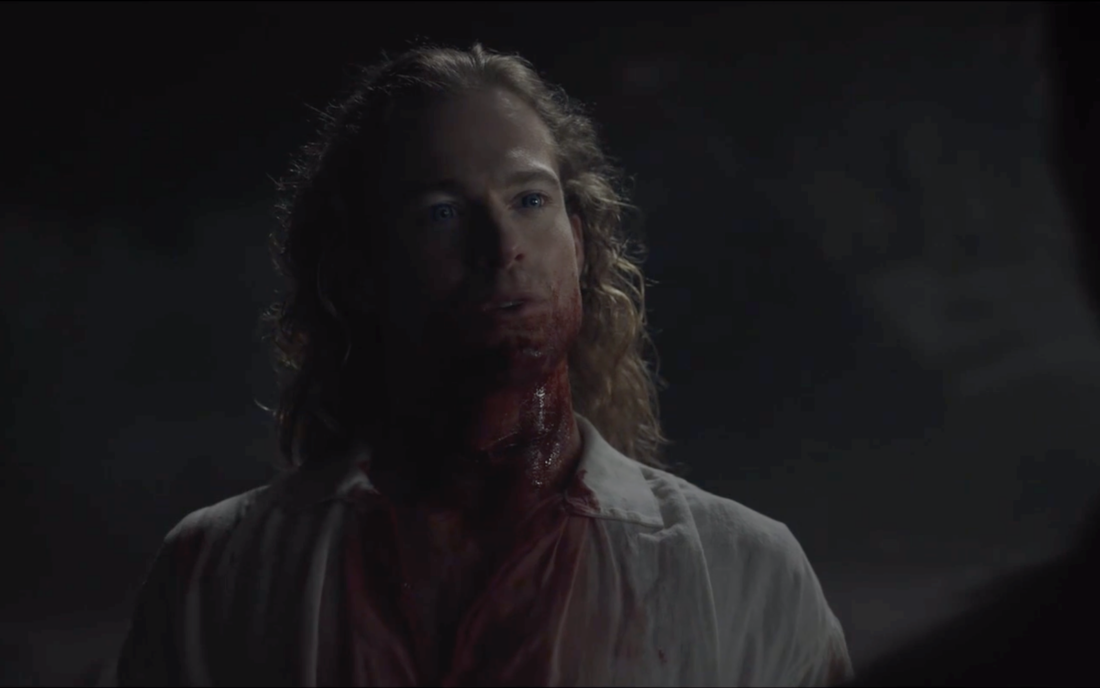
Interview is a show (and a book) about utterly irredeemable monsters. In the season 2 premiere, Louis admits to Molloy that “I had taken 7,000 souls by then, but Lestat was the only one that felt like murder.” It echoes Rice’s assertion at several points in the novel that a human being must die every night for a vampire to live. It’s not an ignorable fact in either book or show. There’s a current trend in smutty-lit, tumblr-adjacent, BookTok/GoodReads circles towards what is colorfully described as, well “Monsterf***ing.” A lot of it focuses on the inhuman physicality of monsters in romance novels that feature sentient dragons (for example) instead of ripped farmhands. But, in the trend, there is much less variety when it comes to the monstrousness of a soul.
Unlike most monsters, vampires are scary because they look human. In many legends (and in the overwhelming majority of modern representations), they are attractive, seductive beings who rely on their external beauty to hunt. The monstrousness of most vampires is in the inability to tell exactly how human they are. Are they immortals with more or less human psyches and feelings who happen to need to drink blood to survive? Are they apex predators who use their ability to seem human the way an anglerfish uses a lure? Rice’s books and the show settle on something in between. Vampires are deeply human in their capacity to feel and most are amoral—unable, perhaps, to be judged by human mores.
The effect of putting the monster back into monsterf***ing, in this second season, is to linger on what makes Interview with the Vampire so compelling—it’s a love story. The show doubles down on the fact that it is a love story between Louis and Lestat. By the season’s end, the show has undone its little twist of having Louis and Armand stay together for decades. It lets Daniel Molloy be an active participant in the plot by having him figure out that it was Armand who masterminded Claudia’s death. It lets us revel in and recoil from the stunning cruelty of Les Théâtres de Vampires. It lets Lestat have one, truly selfless act: letting Louis go by refusing to take credit for saving him. It lets Louis and Lestat reconnect in a Ninth Ward hovel as a hurricane batters the walls. It mostly lets us accept Louis and Lestat as lovers in a way that doesn’t have to look too closely at the hideousness of Lestat’s vanity or his cruelty or his grotesque manipulation of Louis. Armand provided the deeper betrayal. Lestat did the right thing in the end. Every vampire is monstrous and morally grotesque by their very nature, so reading the minutiae of their behaviors is to miss the point. Vampire love is relief from the immortal loneliness we cannot, as humans, imagine…and a show that can let us, unironically, be swept up in the romance of a truly despicable pair, even as it draws attention to their moral vacuity, is a special, subtle, and riveting achievement.
The Claudia Problem
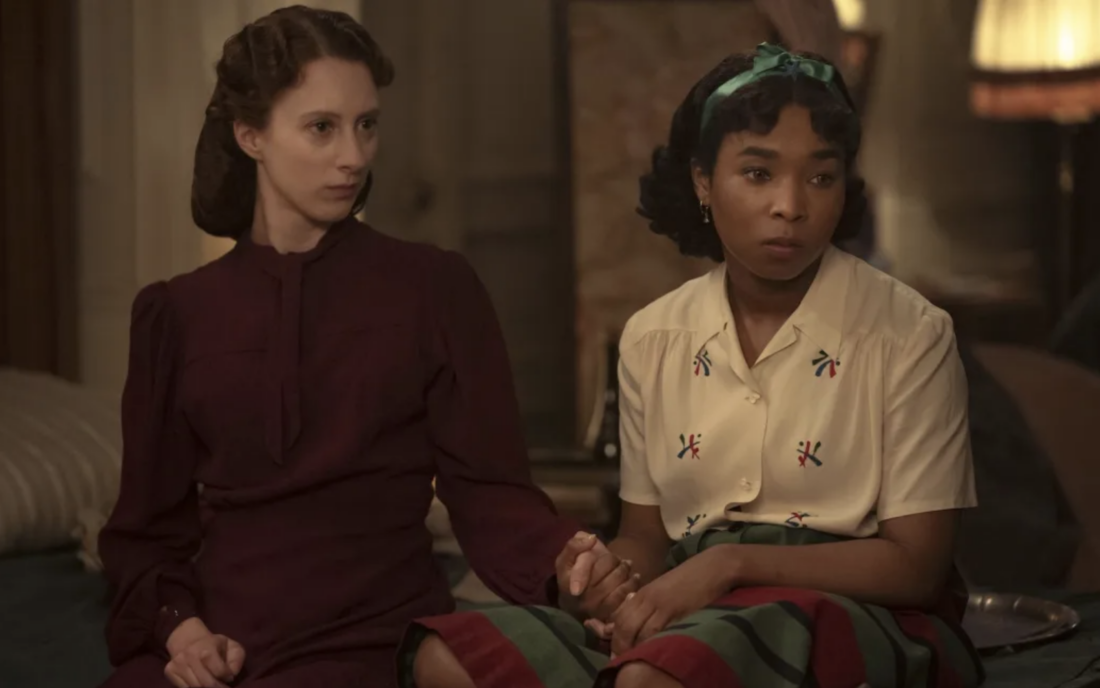
Last season of Interview with the Vampire starred Bailey Bass as Claudia, the child vampire who serves as surrogate sister and daughter to Louis and Lestat. She was magnificent in the role. Due to apparent scheduling conflicts, Bass was unable to return for season 2 and was replaced by Delainey Hayles. I want to be very clear—Hayles does a great job with the role and, given the direction of Claudia’s plot this season (behind the scenes videos continually refer to her as “an older version of Claudia”), it is possible that Bass would have turned in a similar performance. But I can’t help but lament the recast just a bit.
Hayles, who is British, struggles a bit with the New Orleans accent that her countryman, Jacob Anderson, nails so effortlessly. It can be distracting at times. And, while she, again, is very talented and does well with the material, she’s missing a sort of menace that Bass so perfectly embodied. Every time Bass was on screen, she engendered a kind of unhinged uneasiness. She joined the ranks of Jack Gleason on Game of Thrones and Antony Starr on The Boys in achieving a kind of uncomfortable magnetism: upsetting to watch, for fear of what their characters might do, but completely impossible to look away from. Hayles is great and she shouldn’t have to be held to the standard of her predecessor. But here we are and, alas, it’s hard not to look back and think of the performance Bass might have delivered.
Superb New Additions
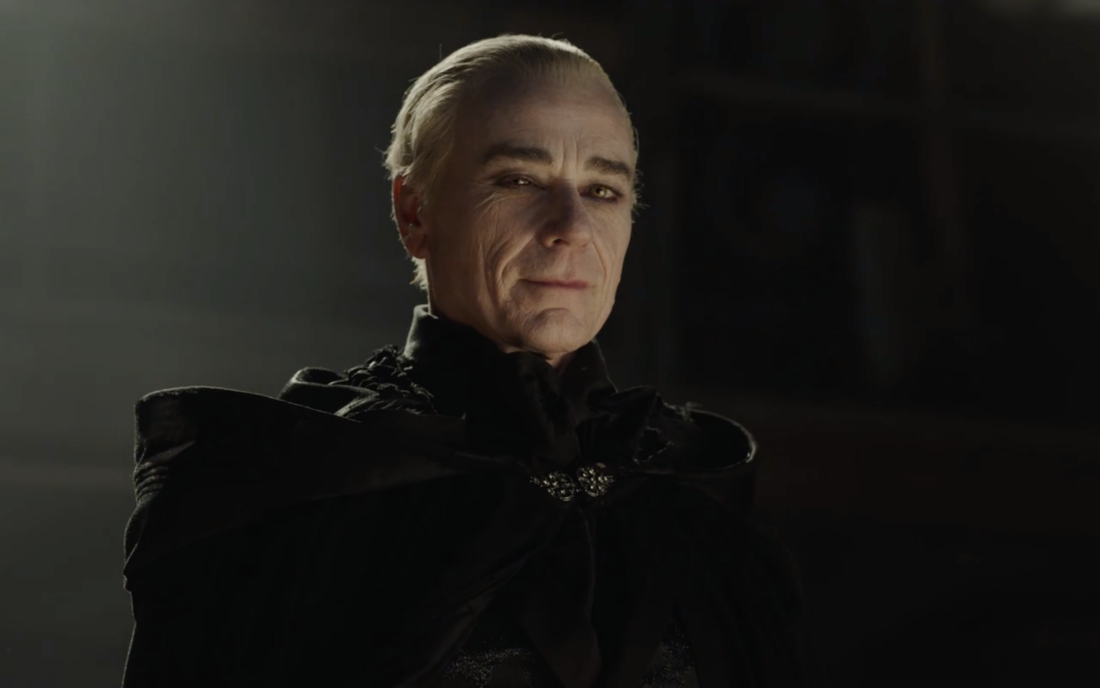
Hayles isn’t the only new (or mostly new) cast member this season. We have a much-expanded role for Armand (Assad Zaman) and the show gives us two bravura roles in Santiago (Ben Daniels) and Madeleine (Roxane Duran). They are all great and welcome additions with the latter sharing most of her scenes with Hayles and both actors elevating one another.
Assad Zaman was woven through the first season, of course—lurking in the background of most interview scenes—playing an Armand masquerading as Louis’ valet, Rashid. Watching Zaman play Armand as himself, however, is deeply rewarding. He looks much closer to the book’s characterization than his fellow Armand-alum, Antonio Banderas, as a cherubic, youthful-looking vampire (in the books, he was turned at seventeen; the show opts for a more reasonable twenty-seven), who seems to have stepped out of a Caravaggio painting. Much like the race-bent Louis and Claudia, Armand has been changed from a Kievan Rus (modern Ukraine) serf to a Delhi-born slave (Zaman is British, of Bangladeshi heritage). In both book and show, Armand is an adopted name, his birth name in the books is Andrei, versus Arun in the show.
Zaman imbues Armand with a thousand-yard stare that it is easy to project deep sadness into. We learn, by season’s end, that it’s quite intentional. Louis believes Armand to be a tragic figure, haunted and broken, and while that may not be strictly untrue, it is also a conscious feint. Armand is a selfish, cruel creature, willing to lie to those he loves most and burying his lack of empathy under an anodyne mask that’s hard to fully parse. He tells Louis in episode four, “Am I the history I have endured? Am I the job I do not want? I do not know anymore. No one has painted me in over 400 years.” He’s only real when observed—only solid and legible when someone else has projected something onto him. Zaman is a talented actor and his best move is capturing a blankness that the audience, much like Louis, is able to believe hides non-existent depths and profound feeling.
Equally fun to watch but entirely different in manner is Rogue One and The Crown’s Ben Daniels, who plays Santiago—Armand’s scheming primo uomo at Les Théâtres de Vampires. Santiago is the tertiary antagonist of Rice’s novel and serves, in this season, as the primary one up until the twist reveal of Armand’s perfidy. Daniels plays Santiago with the sort of classic, queer-coded, arch-camp, moustache-twirling villainy that one would expect out of a mid-’90s Alan Rickman or Jeremy Irons. He chews the scenery with a preening malice that lessens, only subtly, when he’s off-stage. He helms Les Théâtres de Vampires performances which are giddy, enthralling, ludicrously campy, and just tinged enough with actual, stomach-churning terror to effectively communicate why the company has such a dedicated following. Basing so much of your season around a Grand Guignol surrealist theater that produces plays which, in Louis’ own words, are weird, might have been a disaster, but Daniels sells it from start to finish. He plays enough of a complicated, touchy, insecure bastard that he ultimately serves as a deeply effective red herring, directing us away from Armand.
I’ve saved the best for last. In Rice’s book, Madeleine Eparvier is a minor character—a dollmaker who loves Claudia as her own little living doll, is eventually turned by Louis, and is condemned to death by Les Théâtres de Vampires along with Claudia. The show makes her something much more consequential. She is Claudia’s lover and confidante, another fearless outsider who chooses Claudia every time. There’s more great remixing in squaring the book’s character to the time period. Madeleine is a Parisian dressmaker now, instead of a dollmaker. She is also the target of endless harassment by fellow Parisians who saw her decision to sleep with a young, now-dead Nazi soldier as capitulation to Nazi rule. They spray-paint swastikas on her windows and we see tiny glimpses of a public humiliation after a mob show trial. Duran’s Madeleine projects a vigorous, defiant bitterness—a refusal to play by the rules prescribed for her. The show asks you to consider that her liaison with a Nazi soldier is not a cut-and-dried case of moral hideousness but it also never demands that you exonerate her. She has armored herself up and has a prickly aggression hiding her lonely anhedonia. Duran plays it, quietly, to the hilt.
The Madeleine of the book seems to love Claudia in ways that are both maternal and akin to a child playing with a toy—the dollmaker thing makes sense. It’s creepy, like everything about Claudia’s arc is creepy, but it’s vaguely understandable. The show makes Madeleine and Claudia lovers, explicitly, and hinges our emotional investment in Claudia’s death on our buy-in to their relationship. Hayles is a young adult playing a forty-seven-year-old vampire trapped in the body of a prepubescent fourteen-year-old. She does it well (seriously, I can’t stress enough that Hayles is good in this role), but Duran has to sell it. She has to make us believe that this relationship is consensual, natural, and genuine—that Madeleine loves Claudia for Claudia and that there is no hint of pedophilia or infantilization or anything else that would stunt our ability to root (and, eventually, grieve) for them. And she makes it work. Duran is the best new thing about the series. She lends humanity to a character who is only the most minor of footnotes in the book, and lets Delainey Hayles show off a range that, even if she’s not quite as magnetic as Bass, is worthy of celebration.
What’s Next?
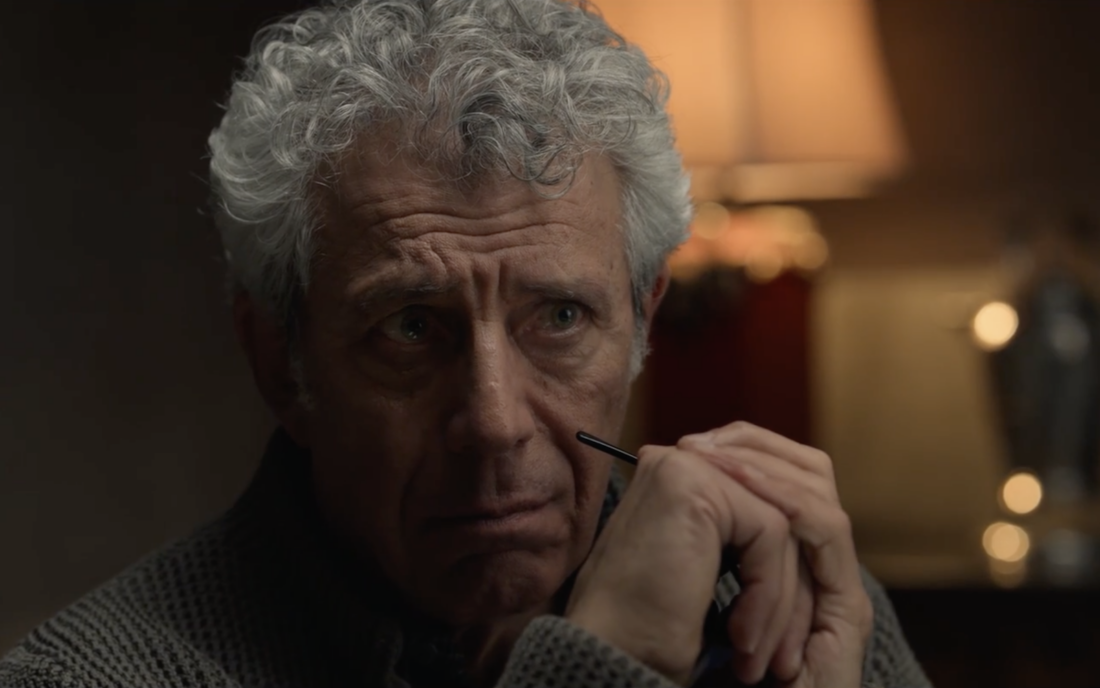
The second season of the show finishes off the plot of the book for which it is named. It even goes quite a bit beyond, folding in the plots of The Vampire Lestat and The Vampire Armand in the forms of retold backstories for both of those titular vampires. The interview ends. We have a pretty good record of Louis’ life as a vampire (even if the time between the first interview in 1973 and the second in 2022 is a bit adumbrated). The show even has a post-interview epilogue (more on that later) which gives us a glimpse into what both Louis and Daniel have been up to between 2022 and 2024. It feels like an ending—a real ending. But the show has been renewed for a third season. So where do we go from here? [Update: showrunner Rolin Jones has now confirmed that the next season will focus on Rice’s second book in the series, The Vampire Lestat, in which the titular vampire starts a band and becomes a rock star. The next couple paragraphs of speculation and thoughts about the show were written before that was confirmed, so please keep that in mind…]
Obviously, there are more Vampire Chronicles novels to draw off of. Rice’s Interview with the Vampire ends in 1973 and The Queen of the Damned, The Tale of the Body Thief, Memnoch the Devil, Merrick, Prince Lestat, and others all have events that take place afterwards. The villain of Tale of the Body Thief, Raglan James, even shows up this season played by an inscrutably accented Justin Kirk (of Weeds and Angels in America fame) and Akasha, the first vampire and villain of Queen of the Damned, gets mentioned in the season finale in a way that seems like she may be important going forward. So, seeds have been sown for the future.
But the show has gone thoroughly off-book insofar as it places Louis at the center of the vampire universe. That makes sense from the perspective of the show. Jacob Anderson is nothing short of remarkable (if only the Emmy Awards recognized acting in genre shows with any consistency) and, casting a Black man as the centerpiece of Rice’s sometimes painfully white, Eurocentric chronicle lets the show talk meaningfully about race in precisely the way that the books never could or, indeed, wanted to. But in terms of what is left to adapt, Louis’ tale is mostly already told. He is the protagonist of 2000’s Merrick—a book that mostly rehashes his relationship with Claudia, something the show has already, thematically, covered—and, otherwise, hangs around the periphery of Lestat’s odyssey. Much like Louis, Rice herself seems ensorcelled by Lestat and makes him the undeniable protagonist of the series. Now that the show will continue, it’ll have to be much more liberal with its adaptation.
So let’s talk about the ending of this season. In the premiere, Daciana (Diana Gheorghian), the lonely Romanian vampire, says that “we [vampires] own the night.” It becomes the last line of the final episode, though Louis makes it personal: “I own the night.” In throwing out Armand and in being the subject of Molloy’s now-bestselling book, Louis has made himself the face of vampirism across the world. His final scene is filled with a susurrus of whispered, psychic threats and resentments from vampires in a dozen different languages. He is the enemy of the conservative, vampire old guard and tells them to come after him if they want—he can rebuff their attacks…after all, he owns the night. It works as a denouement to a series but maybe less as a plot point that needs to be followed up on. What will come next is going to be extraordinarily different, tonally and structurally, from the first two seasons—there will have to be far fewer flashbacks and, without the interview itself, the show’s delicate, beautiful interplay between past and present–truth, lie, and mis-memory—will likely be lost.
And speaking of the interview, the show gives us an odd, somewhat unsatisfying, final beat with Daniel Molloy. After publishing his book and becoming both a journalistic pariah for claiming that it’s true, as well as even more of a literary phenom for selling a record number of self-published copies, Molloy becomes a vampire. Now, this, in and of itself, isn’t a huge problem. The show has always been explicit (and consistent with the book) about his desire to become one and, with his advancing Parkinson’s, shattered personal life, and unwieldy career, it makes sense that he would be increasingly desperate to transcend his humanity. Molloy even becomes a vampire in later books. He’s sired by Armand—though, given the events of this season, it seems unlikely that the show will keep that detail. The problem lies in how much we skip over to have the end reveal. Again, if this were the final season of the show, it would be enough of a tease to give Molloy a twist at the end of his arc. As a setup for season three, it feels like a rushed development that robs the viewer of the pleasures of seeing how he relents and what the exact circumstances of his rebirth are. Did this Lazarus want to be woken? Telling us in flashback feels less powerful than if we had seen it unfold across next season.
In Conclusion
I mean, this season was great. The show continues to have it both ways: going from bombastically melodramatic to quiet and subtle without feeling tonally inconsistent. Anderson and Bogossian continue to give career-best performances, backed up by a solid ensemble. It’s beautifully filmed, costumed, decorated, and lit. I’m writing about House of the Dragon every week here at Reactor and I’m consistently surprised that Interview with the Vampire looks this good on a budget that—though unconfirmed—has to be exponentially lower than House of the Dragon’s $20 million per episode.
I am trepidatious about future seasons. While, in the end, I trust the showrunners enough to continue to be excellent and thought provoking, a part of me will always wish that it had remained a near-perfect two seasons, adapting the first and best of Rice’s novels. Queen of the Damned is a romp, for sure, but it’s not exactly a subtle, emotionally charged meditation on immortality. There is some of that quiet reflection in Merrick but it’s far from her best novel (and so much of what makes it interesting has already been folded into the first two seasons). At the end of the day, they’ve adapted Rice’s best work, and the writer and showrunners will need to really step up their game if they want to take on the rest of it.
And then there is the matter of AMC’s Anne Rice-focused “Immortal Universe.” I wasn’t particularly sold on their second show, Mayfair Witches (whose first season premiered about six months after Interview). As the pressure to make these shows an interconnected cinematic (televisual?) universe, akin to the CW’s Arrowverse, increases, it can only make each individual show feel less interesting and thoughtfully planned. To my mind, the MCU’s recent lapses in quality feel like they stem, in large part, from the need to spend each film setting up the next franchise or arc, rather than letting them be their own, self-contained experience. Furthermore, the obvious connective tissue between all of the Immortal Universe’s properties—the paranormal research secret society, the Talamasca—isn’t particularly interesting to me and hasn’t been particularly compelling when it has been featured on either Mayfair Witches or Interview with the Vampire.
I’m not a doomer when it comes to more of this show—I will absolutely be watching season three—but I am a bit dubious about its future, especially because what it already accomplished is so very, very good. Interview with the Vampire regularly makes me tear up, and gasp, and give little, involuntary wriggles of excitement and delight while I’m watching. That’s all I want from good TV and, no matter what, these first two seasons will remain in the constellation of my all-time favorite television series, going forward.










